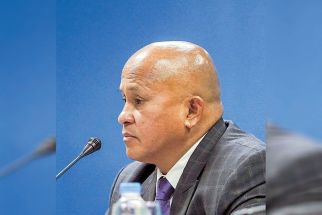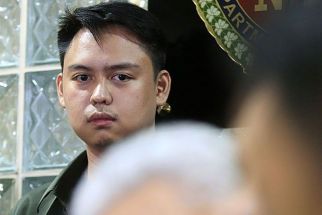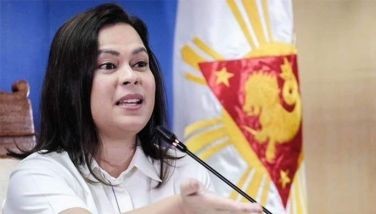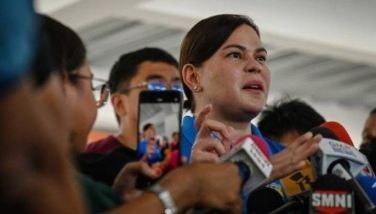House panel chair clears Benigno Aquino III in Dengvaxia mess
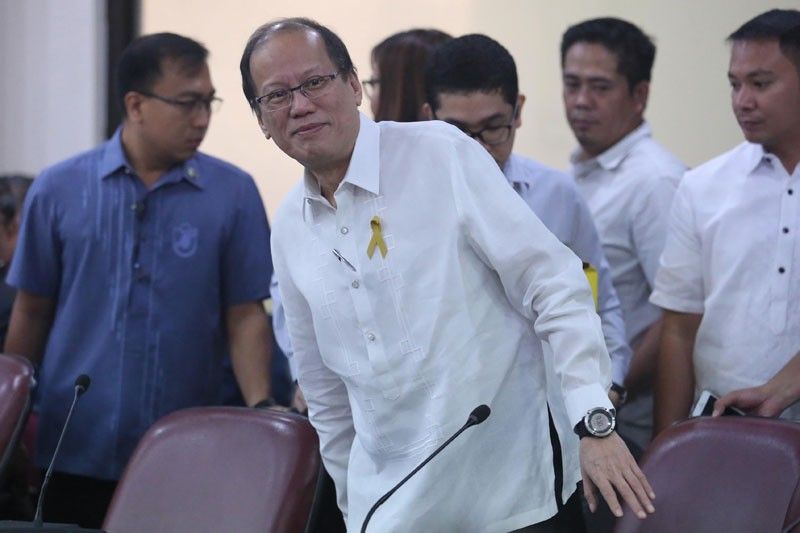
“I believe President Aquino was given information on the urgency to buy the vaccines and he acted on it,” Surigao del Sur Rep. Johnny Pimentel said in a television interview.
MANILA, Philippines — The chairman of the House committee on good government yesterday virtually cleared former president Benigno Aquino III of liability in what he called the Dengvaxia dengue vaccine “fiasco.”
“I believe President Aquino was given information on the urgency to buy the vaccines and he acted on it,” Surigao del Sur Rep. Johnny Pimentel said in a television interview.
“His decision was based on the representation made by former health officials that the Philippines was one of the top 10 countries in the world with high dengue incidence. In fact, we have more than 200,000 cases every year,” he said.
Pimentel said the former officials impressed upon Aquino the need to arrest the rising dengue incidence by procuring the newly developed vaccine Dengvaxia from French pharmaceutical giant Sanofi.
“The objective was really good, but something went wrong along the way,” he added.
Aquino has told the hearings of the Senate and House of Representatives that he authorized the vaccine procurement to protect children from dengue.
He said if he hadn’t done so, lawmakers and the public would be asking him a different question: why he allowed children to be exposed to dengue.
He also lamented that inquiries into his administration’s vaccination program were being “politicized.”
Aquino questioned an “unqualified” expert who has been linking the vaccine to the death of at least 14 children, although a panel of pathologists appointed by the Department of Health (DOH) has concluded that only three could be connected with vaccination.
The Pimentel committee and the committee on health chaired by Quezon Rep. Helen Tan concluded their joint inquiry into the Dengvaxia controversy on Monday.
Pimentel said the two panels are now preparing their report.
“We will release it on or before March 21, when Congress goes on its Lenten recess. The No. 1 that we will hold accountable for this fiasco is Sanofi and of course former DOH officials,” he said.
He recalled that last Nov. 29, Sanofi announced that based on its latest clinical results, children without prior dengue infection and who received Dengvaxia vaccination could be exposed to severe symptoms if they contracted the virus.
The vaccine maker said its Dengvaxia would be largely effective to those with prior infection.
Pimentel accused Sanofi of “misrepresentation and dishonesty for not disclosing this information to the government at the time it purchased Dengvaxia.”
“Had this been revealed to them, officials of the previous administration would not have procured Dengvaxia,” he said.
Sanofi has said the clinical results that were the basis of its November announcement were not yet available when the DOH purchased P3.5 billion worth of Dengvaxia in early 2016.
Pimentel said his committee and the committee on health would also look into the possible misappropriation of the P3.5 billion, which was originally intended for salaries and personnel benefits.
Under a Department of Budget and Management (DBM) circular, any realignment “should be for the same expense class, meaning the funds should have been used for personnel benefits,” he said.
Former budget secretary Florencio Abad has said the realignment of P3.5 billion for Dengvaxia procurement was allowed by law and DBM rules.
Former president and now Manila Mayor Joseph Estrada said Abad should be held responsible for the mess.
Estrada said the Dengvaxia deal could be considered as a “midnight” deal.
“It should not have been signed because it is just about one month before the Aquino administration finished its term,” Estrada said.
Meanwhile, Rep. Gary Alejano of party-list group Magdalo urged President Duterte to rein in the Public Attorney’s Office (PAO) and the DOH.
He said Duterte should direct the two agencies to merge their inquiries into Dengvaxia as their separate investigations are causing undue alarm and panic among children and parents.
Reaching out
Despite the continuing tirades of Chief Public Prosecutor Persida Acosta, the DOH is still willing to work with the PAO in connection with the ongoing probe on Dengvaxia.
DOH Undersecretary Eric Domingo said they would try again to convince PAO to share the results of the autopsies that it conducted on some children who died after being vaccinated.
“We are still reaching out to PAO because the DITF reports will not be complete without tissue studies,” he said, referring to the Dengue Investigation Task Force, the expert panel of the University of the Philippines-Philippine General Hospital which looked into the deaths of 14 vaccinees.
Domingo had earlier written Acosta to request that PAO share its information but the latter had turned this down, citing conflict of interest since it was the DOH that conducted the dengue vaccination campaign.
Currently, PAO has conducted autopsies on 26 vaccinees and claimed there was a trend for severe dengue.
If it is not possible for PAO to work with the DOH, “then we will explore other options,” Domingo said.
He said there are forensic pathologists that can do autopsies for the DOH but this would not be easy.
“This means we have to exhume again the bodies and repeat the autopsies. I don’t think the families will allow it and we also don’t want to do that (as much as possible),” he added.
Health Secretary Francisco Duque III said the Department of Justice plans to get the services of an expert forensic pathologist to be able to help in the search for truth about why some children vaccinated with Dengvaxia reportedly died.
Duque said he has talked to Justice Secretary Vitaliano Aguirre II and would submit a list of expert pathologists from the World Health Organization.
Duque said he hopes that by March, there would be available foreign experts to help in the inquiry.
Duque said he heaved a sigh of relief upon conclusion of Dengvaxia hearings at the Senate.
He said that as far as the DOH is concerned, “we are at the right direction (but) I don’t know with the others.”
Duque also rejected proposals to use Dengvaxia vaccines in the private sector.
According to Duque, Dengvaxia cannot be sold in the market because the Food and Drug Administration (FDA) has suspended its Certificate of Product Registration (CPR) for one year.
“No way. It will not happen. Sanofi had committed many violations so even if they want it, they cannot bring back the vaccines to the market,” he said in a radio interview.
Duque added the FDA had imposed a year’s suspension of Dengvaxia’s CPR after Sanofi failed to meet some post-marketing report requirements of the agency.
Earlier, a group of doctors, scientists, health advocates and academicians urged the DOH not to remove the vaccines from the market altogether because there are patients who have had dengue in the past and are interested in the vaccine.
Based on the report of Sanofi in November 2017, Dengvaxia could lead to severe dengue if given to those who have no history of dengue.
But if administered to those who have had dengue, it can provide protection. – With Sheila Crisostomo, Jose Rodel Clapano, Eva Visperas
Related video
- Latest
- Trending















